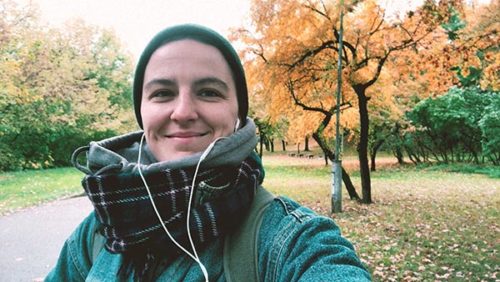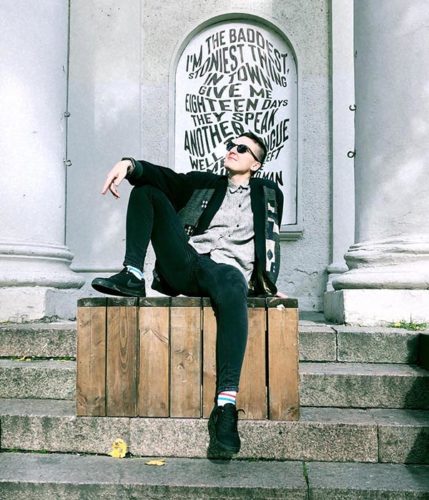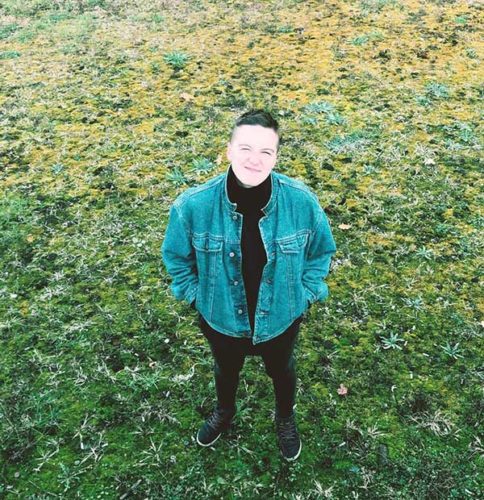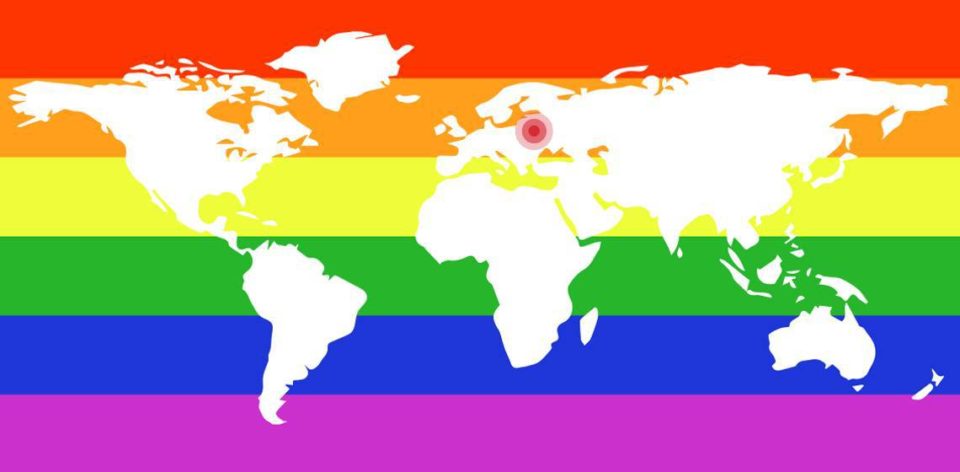The Baltic region is getting more and more attention as popular tourist destinations. Yet, people tend to know little about the specific countries of the area. For example, how are LGBTQ+ rights in Lithuania? Our guest of the month will tell us about her journey from internalized homophobia to non-conformism and self-acceptance.
Can you introduce yourself please, Gabriele?
My name is Gabriele Garlaite. I am from Lithuania. I was born and lived most of my life in the capital Vilnius. I accepted that I am a lesbian in 2015 after a long battle of internal homophobia. I was raised in a heteronormative family and environment. For example, I didn’t even have a friend with colorful hair. Currently I am a proud out lesbian. I consider myself a feminist so I strongly believe in all women’s liberation from patriarchy. In my opinion being a lesbian is one of the best weapons against patriarchy and gender roles. I am actively trying not to conform in as many areas of my life as I can. For example, I am not shaving my body; I have short hair; when I have a choice I invest my energy and time into women; and I do not engage in homonormative relationships. Since we live in men’s world, created by men for men, it is really important to acknowledge that lesbianism is one of the most important acts of liberation! I invite you to remember that being with women as women is a really unique experience of friendship, partnership, and sisterhood all in one.

Indeed. Now let us turn to Lithuania specifically. How is it to be an LGBTQ+ person in general and lesbian* in specific over there?
The situation in Lithuania is pretty stagnant and not very positive for LGBT people. Although there are some positive signs, in general it is bad. There is no social acceptance for LGBT people, consequently marriage, or even registered partnership is out of the question. In addition, we even have a law that claims underage people cannot receive positive information about the LGBT. As for lesbians, they are mostly invisible in our society. We do not have publicly known LBTQ women. Most people think that it is just a phase of identity and it is not a serious relationship.

So you live in Vilnius. What’s the situation in the capital of Lithuania?
Vilnius is the most European city in the whole country, which means it is very different to be an LGBT person here than in the rest of the country. It is not surprising to see a lesbian couple in Vilnius. As a consequence, I would say that as an out lesbian I feel safe in my city. Nevertheless, when I go to another city like Kaunas, which is the second biggest city in Lithuania, I do feel very conscious of my sexual orientation.
Can you say a couple of words about lesbian* social life in the capital?
In Vilnius lesbian life is not very vibrant, but we do have some gatherings. For example, we have a basketball team which is called Gender Wrongs (Queer Women Community). We play basketball every Sunday. Gender Wrongs organizes parties for queer women (usually at least 3 or 4 times a year). Since Gender Wrongs is a nonprofit community, all of the money that is collected during parties are donated to some feminist or queer projects, for example last year all the money that was collected was donated to Sapfo which has been organising DIY feminist gatherings since 2012. Besides these community activities, we have a couple of individual events and initiatives happening from time to time.

Good to hear. And now, as I always, I’d like to ask you to share a memorable coming out stories of yours.
I came out to my mom almost 6 months after realizing it myself. Her reaction was really emotional. Since my mom is religious and also full of stereotypes, she blamed herself for what was happening to me. She had wanted a boy when she was pregnant with me and she thought that was why I had become a lesbian. For several years she really struggled in her mind to accept me, even if on the surface our relationship seemed fine. But then one day, just a year ago, as she was sitting at the table during breakfast she suddenly told me: “I am sorry I was not able to accept you for who you are.” It was her way of saying that something has changed in her and she has found peace. And something really did change, because now I am really close to my mom and I tell her all of my struggles as a lesbian.

